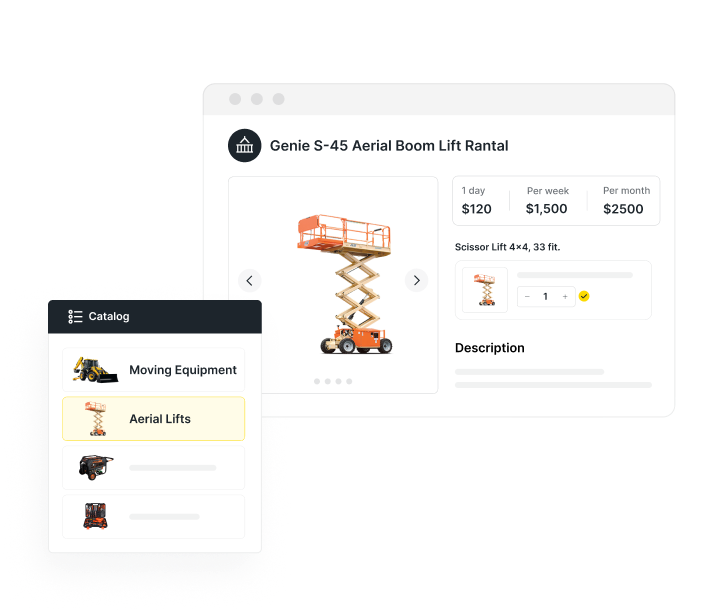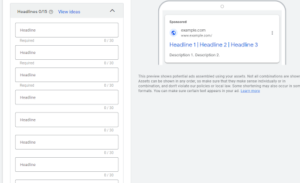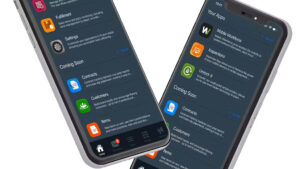Have you recently launched an equipment rental business and found yourself looking for ways to get the word out about your new venture?
Thinking about starting your own company, but want to ensure that you know how to effectively market your services? Want to fuel continued growth by leveraging proven marketing ideas for equipment rental businesses?
If your answer to any of the above questions was a definitive “yes,” then you are definitely in the right place.
In the article below, our team has composed a list of some well-established marketing tips for equipment rental businesses. Your company can benefit from these tactics whether you are well-established or new to the equipment rental industry.
As you explore ways to build your brand, acquire new clients, and boost revenue, we suggest that you use the following tactics.
Clearly Define Your Target Audience
You must first identify who you plan to target before you take to social media, launch paid ad campaigns, or start writing blogs. Without a clearly defined target audience, it will be incredibly difficult to put together a cohesive strategy to execute your marketing ideas.
When defining your target audience, you should focus on attributes such as:
- Demographics (age, gender, etc.)
- Occupation
- Location
After you have gathered some preliminary data on your target audience, you can segment it into subgroups. While there are many ways to segment your audience, one of the most effective tools for doing so is a system known as “buyer personas.”
Buyer personas outline specific segments within your target audience. These pseudo-representations of your customers describe each segment’s pain points, challenges, and interests. Buyer personas will help you tailor your marketing message for each audience segment.
For more on creating buyer personas, check out this guide from HubSpot.
Create a Content Strategy and Publish Content Regularly
Next on your to-do list is creating a search engine optimization (SEO) strategy. SEO is the art of improving your website so that your content is more visible on search engines.
Search engines like Google and Bing rank websites using complex algorithms. These rankings are designed to connect users with relevant search results based on the keywords they queried.
While there are many components of SEO, keywords remain the core. In order to boost your ranking on search engine results pages (SERPs), you need to strategically target keywords and incorporate these phrases into your content.
On that note, you cannot aimlessly pump out content that is jam-packed with semi-relevant keywords.
Instead, you need to create a cohesive plan that outlines what keywords you want to target, why, and how you intend to go about it. Once your plan is in place, you will need to produce high-quality blog content and publish it on a regular basis. Over time, this will help you improve your rankings.
When creating content, focus on delivering value to your readers. The majority of your content should be educational, informative, and perhaps even fun and entertaining. Your blogs’ specific tone and style should align with your brand values and voice.
For instance, if you rent bounce houses or party supplies, it’s okay to be a little more whimsical in your blog content. Conversely, if you rent construction equipment, your blogs should be more professional and focused.
Make Sure Your Site Includes High-Quality Photos
When prospective clients are contemplating renting equipment from your company, they want to know that they are getting quality products. While describing the quality of your rentals will help sway their decision, a picture is worth a thousand words.
Professional photographs will allow customers to see precisely what they are renting. Photographs are also eye-catching, which means that visitors to your site are more likely to slow down and actually pay attention to the content on your site.
Rental photos are not just useful for your website, but they can help you garner additional attention on social media platforms as well. If prospective clients are rapidly scrolling through their news feeds and come across a big, bold image of the equipment they are interested in renting, they will stop in their tracks.
Get Active on Social Media
Speaking of social media, various social media platforms are great tools for building your brand and attracting new clients. When marketing on social media, we suggest using a combination of organic and paid marketing.
Social media can be one of the most versatile marketing ideas for rental businesses, giving you a lot of options for the kinds of content you can share to engage with your customer base.
Organic marketing involves generating traffic without the use of paid ads. You can drive organic traffic by creating social media pages, growing your following, posting regularly, and interacting with followers.
Paid campaigns on social platforms work very similarly to those on search engines. When setting up a campaign, you can customize your budget, ad display options, and bid amounts. These capabilities give you total control over your marketing budget while also maximizing your reach.
Which Social Media Platforms Should I Use?
While there is no doubt that you should be marketing your rental company on social media, the question is, what platform should you be using? There is no one size fits all answer.
When selecting which platforms to leverage, you must consider your target audience. Let’s stick with the party and bounce house rental example to keep things simple.
Bounce house and party supply rental businesses primarily target consumers who are hosting personal gatherings. In light of this, such a business would probably benefit the most from marketing on Facebook and Instagram.
On the other hand, a business-to-business (B2B) company that rents to construction companies needs to connect with other business owners. Therefore, LinkedIn would probably be the ideal marketing channel for that business.
However, B2B businesses can still benefit from marketing on mainstream social channels like Instagram —although it should not be their primary channel. Regardless of which platforms you choose to use, be careful not to overload yourself. Doing so can make it difficult to manage all of your channels.
Engage on Your Chosen Channels
When marketing on social media, you must do more than just run ads or post content. You also need to engage with your followers or people who comment on your posts.
To be clear, we don’t expect you to spend hours replying to followers every day. You have a business to run, after all. However, you do need to check your social media at least once or twice daily and strive to be responsive to customer inquiries.
If your social media followers become unruly, you may want to bring in a full-time digital marketing professional to manage your accounts. Alternatively, you could hire a freelancer to spend five to ten hours per week managing your social channels if you don’t have the need or budget for a full-timer.
Create an Email Marketing Strategy
We know that email marketing sounds old-fashioned, but it remains a great way of connecting with customers. Setting up an email marketing campaign can help you connect with new clients, nurture existing leads, or solicit reviews from past customers.
Managing an email marketing campaign has become easier than ever before, thanks to platforms like MailChimp and ActiveCampaign. These solutions allow you to segment your email lists into various groups so that you can target each segment with specific messaging. For more on email marketing, explore this guide.
Follow Up with Past Customers
Staying connected with past customers is a great way of keeping your brand top of mind. You can keep up with previous clients in many different ways.
One simple tactic involves adding them to a recurring email list using the tools mentioned above. Alternatively, you can use ad retargeting by installing cookie-based trackers on your website. This approach will help you display ads to prospects who have visited your site but may have left without contacting your company.
Nurturing relationships with previous customers can generate repeat business. In turn, this will lead to stronger revenue and help you build your brand’s reputation.
Invest in Quality Rental Management Software
All of the above tactics will help drive customers to your website. But what sort of experience are they going to enjoy once they get there? Will they be able to book their own rental or easily explore what items you have available? If not, then you have fallen short of customer expectations and hindered your own growth efforts.
The good news is that you can modernize your online storefront with Quipli’s rental website builder. To learn more about our online scheduling and rental booking platform, sign up for a free demo.
We offer a full suite of digital growth services for equipment rental businesses. To find out more about how to take your marketing to the next level with Quipli, reach out any time!
Learn About Quipli’s rental Software












